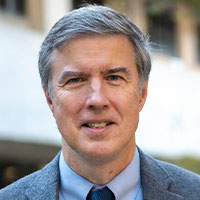 News
NewsThe Supreme Court of Vanuatu ruled on Friday that Vanuatu’s opposition party won a no-confidence vote regarding incumbent Prime Minister Ishmael Kalsakau last week. While the speaker of Parliament initially ruled that the motion failed, because it garnered less than the absolute majority of 27 votes, Judge Edwin Goldsbrough of the Supreme Court found that 27 votes should not constitute an absolute majority because one Parliament seat was vacant when they held the motion.
In considering whether the absolute majority of 27 had to be met as held in Kilman v Speaker of Parliament of the Republic of Vanuatu, Goldsbrough wrote:
[T]his Court concludes that the actual number of members of Parliament when this vote was taken is the relevant number on which an absolute majority should be based. That absolute majority, with fifty-one members, is twenty-six. The correct decision following the vote was that the motion was carried.
In other words, Goldsbrough held that the no-confidence motion for Kalsakau won since 26 votes—which was the absolute majority required—were cast in favor of the motion. Goldsbrough also stayed an action to remove Kalsakau until 3:00 PM local time on Monday, which gives time to appeal the issue. If no appeal is made or the appeal is rejected, Vanuatu’s Parliament will elect a new prime minister.
Vanuatu’s opposition leader Bob Loughman, who was prime minister of Vanuatu before Kalsakau, lodged the no-confidence petition against Kalsakau for signing a security pact with Australia. Loughman criticized the security pact, stating that it compromises the neutral status of Vanuatu and potentially jeopardizes assistance from China. Nevertheless, Kalsakau espoused that Loughman’s position was baseless and disagreed with him in saying that more international leaders, such as French President Emmanuel Macron, had visited Vanuatu during his premiership as compared to Loughman’s.


